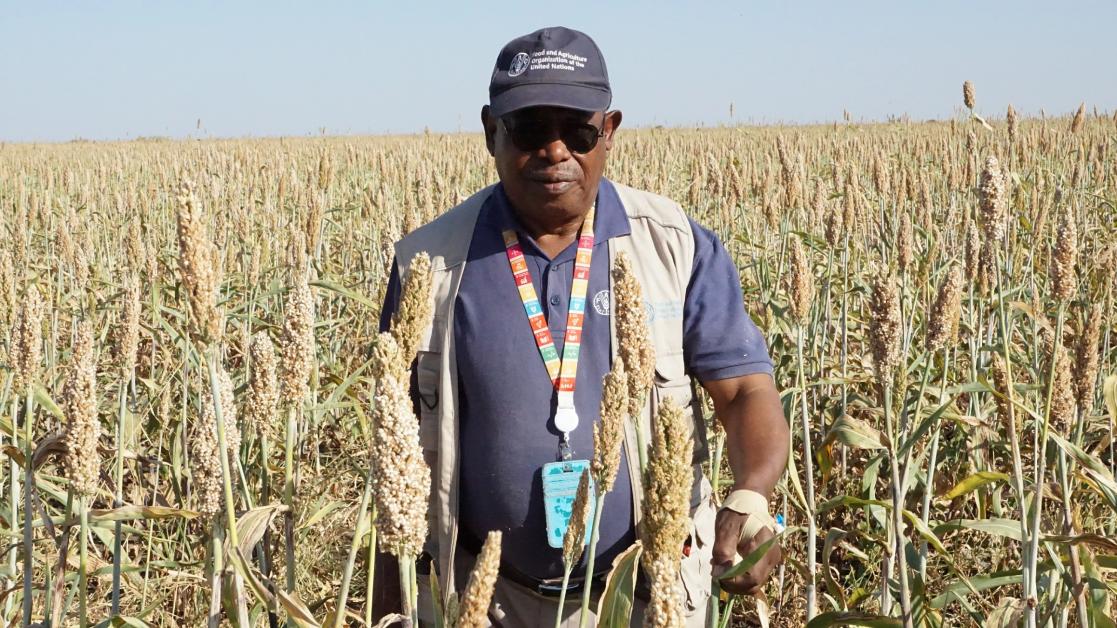Sudan: Sustaining Food Production in a Time of War

“Since the war erupted, all we do is farm” says Aziza, “We rely on farming completely for all our meals. If an item is missing, we take some of the crops to sell at the market and buy the missing ingredients with the revenue.”
Sudan is one of Africa’s most fertile lands, with over 60% of its land deemed agricultural. More importantly, farming supports the livelihoods of millions of Sudanese households. The challenges faced by farmers due to the on-going violence had crippled the ability of many to proceed with the planting season. A failed farming season was almost certainly going to deepen the food security crisis.
One of the biggest challenges smallholder farmers faced this year was access to quality seeds.
In order to help sustain food production in the state, it was critical to support the farming season. The EU and FAO partnered to distribute emergency seeds to farmers in 12 localities across Gedarif state. Six hundred villages received improved sorghum and millet seeds, a critical intervention to safeguard farmers’ livelihoods and support them to continue producing food for themselves and their communities.
“It wouldn’t have been possible for us to get improved seeds,” explains Aziza, “They are too expensive. And by the time we get them it’s too late.”
Despite the war, the harvest season in Gedarif state was remarkably successful.
“I planted just over 10 acres. Look at my field! I can’t even estimate my yield” Aziza pointed at her field in delight. “Farming was excellent this year” she adds.
“The seeds distribution programme had a clear impact on achieving food security for the rural population in Gedarif” affirms FAO’s coordinator in Gedarif, Bannaga Hago Elfaki.
“I received 10kg of seeds. I expect my harvest to be 12 sacks of 90kg each” said Amoona, another smallholder farmer and a mother of seven. “I’ll be able to meet our needs, educate my children, provide for our family and feed my animals. Praise to God”
While the emergency seeds distribution program offers some relief, farmers continue to face an uncertain future as the agricultural sector struggles with the conflict’s ongoing impact. At least for now, Aziza, Amoona and many other smallholder farmers in rural Gedarif can rest assured that they can provide for their families for the next few months, a security denied to countless farmers elsewhere in conflict-affected areas.

European Union, 2025




